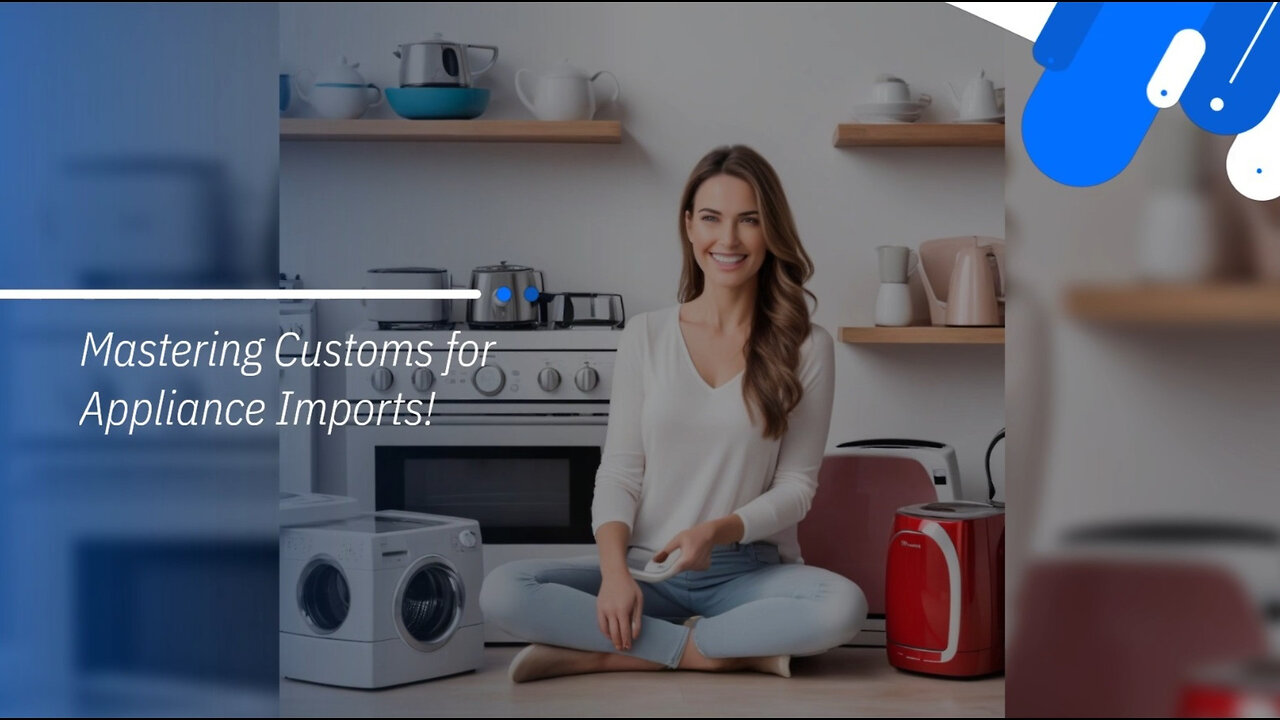Premium Only Content

Mastering Customs: How to Navigate Importing Kitchen Appliances and Cookware
ISF Entry | Phone: 800-215-1849 | Email: isf@isfentry.com | https://isfentry.com/
To successfully navigate customs when importing kitchen appliances and cookware, it is crucial to have a clear understanding of the customs process and the role of customs bonds. Customs bonds serve as a financial guarantee for the payment of duties, taxes, and fees associated with the imported goods. They are a legal requirement when importing commercial goods into the United States and facilitate compliance with customs regulations.
To streamline the customs process, it is recommended to enlist the services of a professional customs brokerage firm. These experts have extensive knowledge of customs regulations and can assist with proper documentation, classification of goods, duty calculation, and customs clearance. Working with a customs broker can help minimize customs delays and ensure compliance.
Another critical aspect of importing kitchen appliances and cookware is the Importer Security Filing (ISF). This filing must be submitted to US Customs and Border Protection at least 24 hours before the vessel departs from the foreign port of loading. The ISF provides essential information about the shipment, facilitating cargo security and risk assessment.
Compliance with customs regulations and requirements is paramount in international trade. Non-compliance can result in penalties, shipment delays, or even the loss of goods. Therefore, it is essential to provide accurate and complete documentation during the customs clearance process, demonstrating the value, origin, and compliance of the imported goods.
Having a solid compliance strategy is key to navigating customs smoothly. This includes understanding import restrictions, trade agreements, and any specific regulations related to kitchen appliances and cookware. Staying up-to-date with regulatory changes and seeking professional advice can help ensure compliance and minimize potential issues.
Once the goods have successfully cleared customs, accurate record-keeping is important for future reference and compliance purposes. This includes maintaining records of import transactions, such as invoices, packing lists, and certifications.
In conclusion, successfully importing kitchen appliances and cookware requires a thorough understanding of customs processes, compliance with customs regulations, proper documentation, and working with professional customs brokerage services. By following these steps, importers can ensure a smooth and efficient import process.
#usimportbond #isfcustomsbroker #uscustomsclearing #isfentry
Video Disclaimer Here: This educational content is unassociated with US governmental bodies.
00:26 - Understanding Customs Processes: It's crucial to grasp the customs process when importing kitchen appliances and cookware, including the necessity of customs bonds, which serve as financial guarantees for duties and taxes.
01:11 - Utilizing Customs Brokerage Services: Enlisting a professional customs brokerage firm can help streamline the import process by ensuring proper documentation, classification of goods, duty calculation, and customs clearance.
02:03 - Compliance and Documentation: Adhering to regulations, submitting the Importer Security Filing (ISF) in a timely manner, and providing accurate supporting documents are essential to avoid penalties and ensure smooth customs clearance.
03:09 - Record Keeping and Distribution: After clearing customs, maintaining accurate records of import transactions is vital for compliance and future reference, allowing for efficient distribution of imported kitchen appliances and cookware.
-
 LIVE
LIVE
The HotSeat
1 hour ago🚨 Dems Swear Mail-In Voting Is “Secure”… Trump Says HELL NO 🚨
590 watching -
 LIVE
LIVE
Reidboyy
7 hours ago $0.55 earnedNEW FREE FPS OUT ON CONSOLE TODAY! (Delta Force = BF6 Jr.)
75 watching -

Stephen Gardner
1 hour ago🔥YES! Trump unleashes Democrats’ worst nightmare!
2 -
![[Ep 731] Trump Leading the World | Islam NOT Compatible with West | Guest Sam Anthony [your[NEWS](https://1a-1791.com/video/fww1/93/s8/1/c/n/K/a/cnKaz.0kob-small-Ep-731-Trump-Leading-the-Wo.jpg) LIVE
LIVE
The Nunn Report - w/ Dan Nunn
1 hour ago[Ep 731] Trump Leading the World | Islam NOT Compatible with West | Guest Sam Anthony [your[NEWS
145 watching -
 2:05:30
2:05:30
Side Scrollers Podcast
5 hours agoEveryone Hates MrBeast + FBI Spends $140k on Pokemon + All Todays News | Side Scrollers Live
74.4K2 -
 46:56
46:56
The White House
5 hours agoPress Secretary Karoline Leavitt Briefs Members of the Media, Aug. 19, 2025
43.5K45 -
 1:11:36
1:11:36
Sean Unpaved
4 hours agoFootball Flashpoint: Bengals' D in Distress, Colts' Bet on Jones, & Micah's Trade Talks
34.5K2 -
 LIVE
LIVE
The Robert Scott Bell Show
1 hour agoVaccine Lawsuits & Legal Fights, Autism–ADHD Link to Tylenol, MAHA Action, Caitlin Sinclair, Fat Jabs for Pets - The RSB Show 8-19-25
71 watching -
 2:57:22
2:57:22
Right Side Broadcasting Network
7 hours agoLIVE REPLAY: White House Press Secretary Karoline Leavitt Holds a Press Briefing - 8/19/25
90.1K47 -
 1:03:48
1:03:48
Timcast
4 hours agoGavin Newsom SURGES In Polls, COPIES Trump's Style
142K119